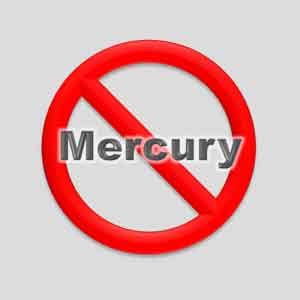- Home
- Medical news & Guidelines
- Anesthesiology
- Cardiology and CTVS
- Critical Care
- Dentistry
- Dermatology
- Diabetes and Endocrinology
- ENT
- Gastroenterology
- Medicine
- Nephrology
- Neurology
- Obstretics-Gynaecology
- Oncology
- Ophthalmology
- Orthopaedics
- Pediatrics-Neonatology
- Psychiatry
- Pulmonology
- Radiology
- Surgery
- Urology
- Laboratory Medicine
- Diet
- Nursing
- Paramedical
- Physiotherapy
- Health news
- Fact Check
- Bone Health Fact Check
- Brain Health Fact Check
- Cancer Related Fact Check
- Child Care Fact Check
- Dental and oral health fact check
- Diabetes and metabolic health fact check
- Diet and Nutrition Fact Check
- Eye and ENT Care Fact Check
- Fitness fact check
- Gut health fact check
- Heart health fact check
- Kidney health fact check
- Medical education fact check
- Men's health fact check
- Respiratory fact check
- Skin and hair care fact check
- Vaccine and Immunization fact check
- Women's health fact check
- AYUSH
- State News
- Andaman and Nicobar Islands
- Andhra Pradesh
- Arunachal Pradesh
- Assam
- Bihar
- Chandigarh
- Chattisgarh
- Dadra and Nagar Haveli
- Daman and Diu
- Delhi
- Goa
- Gujarat
- Haryana
- Himachal Pradesh
- Jammu & Kashmir
- Jharkhand
- Karnataka
- Kerala
- Ladakh
- Lakshadweep
- Madhya Pradesh
- Maharashtra
- Manipur
- Meghalaya
- Mizoram
- Nagaland
- Odisha
- Puducherry
- Punjab
- Rajasthan
- Sikkim
- Tamil Nadu
- Telangana
- Tripura
- Uttar Pradesh
- Uttrakhand
- West Bengal
- Medical Education
- Industry
Toxics Link appeals to Govt for a mercury-free healthcare system in India

New Delhi: Toxics Link, an environmental research and advocacy organization engaged in disseminating information and helping strengthen campaigns against toxic pollution, has appealed to the government to issue a blanket ban on the use of mercury in the healthcare sector.
Mercury has high toxic properties and causes contamination of soil and water, leading to human health and environmental hazards.
Globally, the healthcare sector uses mercury extensively in a number of medical equipment, including thermometers, sphygmomanometers, esophageal dilators and gastrointestinal tubes. Dentistry is also one of the major users of mercury.
Dental amalgam, used to fill cavity caused by tooth decay, contains about 50 percent of mercury and other toxic metals such as silver, tin, copper, zinc, etc. Contact amalgam, generated during the process of amalgam restorations and residual non-contact amalgam, (the excess mix leftover) finds their way into air and water after their disposal, resulting in environmental pollution and health hazards.
Children and pregnant women in particular are susceptible to mercury toxicity. It can pass through skin, blood and placental barrier and cause devastating effects on the functioning and growth of a developing fetus.
According to the United Nations Environment Programme (UNEP), globally, about 260 to 340 tonnes of mercury is annually released into the environment from the use of dental amalgam.
Emphasizing the need to create awareness about the harmful effects of mercury on health, Satish Sinha, Associate Director, Toxics Link said, ?There is an urgent need to rollout a robust public awareness campaign to educate consumers and healthcare workers, including addressing disposal of mercury waste. Toxics Link urges the Union Ministry of Health and Family Welfare to institute a blanket ban on the use of mercury in the health sector and to facilitate the movement towards safer alternatives.?
Many clinics and hospitals in Delhi practice mercury-free dentistry. However, dentists generally do not explain to their patients the impact of mercury filling on their health. This is despite the availability of safer alternatives like GIC and composites.
Besides dental fillings, people are also exposed to waste mercury through contaminated food - fish in particular - water and air. Dietary intake of methyl mercury through fish and other seafood products is the predominant non-occupational exposure source for the public.
Toxics Link has been working relentlessly to drive awareness about mercury toxicity and towards the goal of phasing out mercury and curbing mercury pollution. To this end, the organization works with various strategic partners, including European Environmental Bureau (EEB), the Zero Mercury Working Group (ZMWG), International POPs Elimination Network (IPEN), United Nations Environment Programme (UNEP), World Alliance for Mercury-Free Dentistry, Asian School of Public Health, Dhaka and other Indian NGOs.


